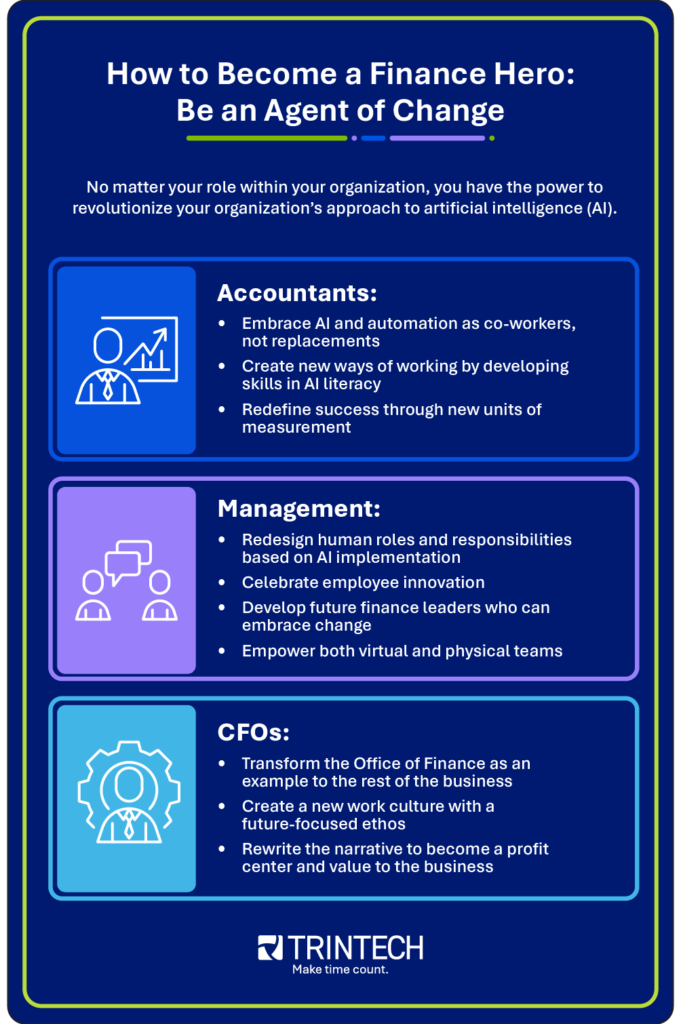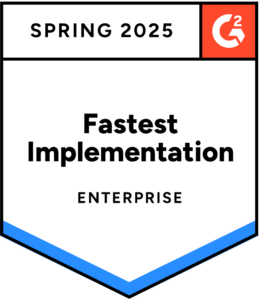Embracing Change: How AI is Paving the Way for New Opportunities in Accounting
Blog post
Share
It’s a common misconception that we hear all the time: technology is replacing humans. From self-checkout machines to artificial intelligence (AI), luddites have been declaring that the world will soon be run by robots. However, if we take a closer look at the data, this couldn’t be further from the truth.
Accountants and AI: Match Made in Heaven
When it comes to finance and accounting, AI has begun taking over the repetitive, manual, and tedious financial close tasks while accountants are freed to focus on value-adding activities that require interpreting data into actionable, strategic information. This work is more rewarding, and most likely the reason most accountants actually became accountants.
Through machine learning (ML), programs recognize patterns and apply algorithms based on those patterns. This process is repeated and refined based on feedback and iterated training. With more data, the more these algorithms learn. When fed high-quality data, the better they get and the more accurate their predictions will be. However, a human counterpart will always be needed to interpret exceptions and resolve them quickly.
This will lead to the creation of new jobs. Accountants will need to be involved in training, testing, and auditing ML models and algorithms, requiring an understanding of ML techniques. That deep human understanding will remain necessary to maintain AI/ML models as well. Being able to apply context to the business that surrounds the data requires broad thinking that is currently still out of reach and will remain so for some time.
Accounting processes will continue to rely on technical expertise and human judgment when it comes to handling exceptions. Leaders within finance and accounting will need to partner with other departments to help them understand data and models, driving their coworkers to the right conclusions. In other roles, accountants will need a working knowledge of ML to collaborate with experts and other parts of the business. Auditors will need to understand how ML algorithms are created and maintained to ensure they remain robust and accurate. This could come in the form of offering assurance services.

Don’t forget to download and share this infographic with your social community!
Evolution of Accounting
AI and ML aren’t replacing accountants, and they aren’t making accountants’ jobs more difficult. Rather, the necessary skillset is evolving. Understanding programming and statistical analysis, for example, may one day become the norm for accountants. Even if preparing weekly reports based on big data analytics can be automated in a single command code, it will remain essential that the process can be explained, verified, and secure. Accounting teams that invest in upskilling their current employees while training and hiring the next generation of accounting professionals will be most primed for success.
The Bottom Line
Accountants aren’t bean counters: they’re professionals who are responsible for providing actionable insights to empower the rest of the business. Their professional skepticism is not something that a machine can mimic. By embracing the developing tools of AI and ML, accountants will be even further empowered to provide timely and relevant data to make better business decisions, grow revenue, improve efficiencies, and better manage risk and compliance.






